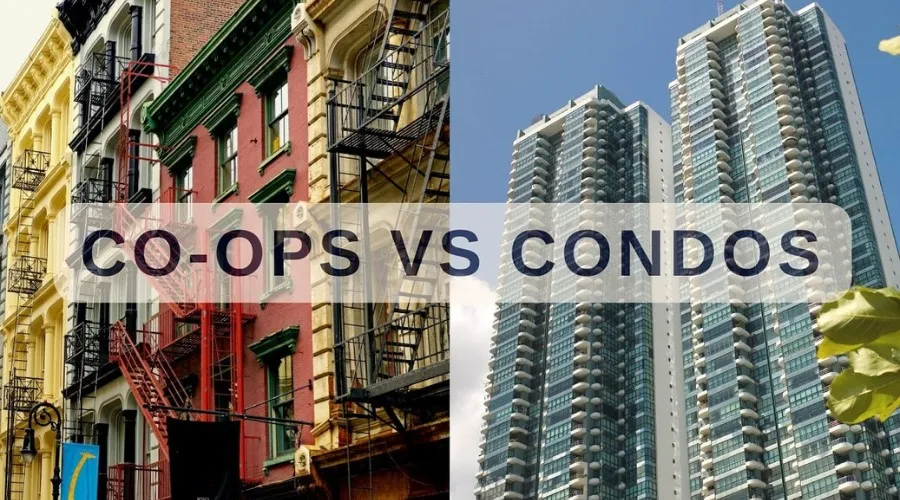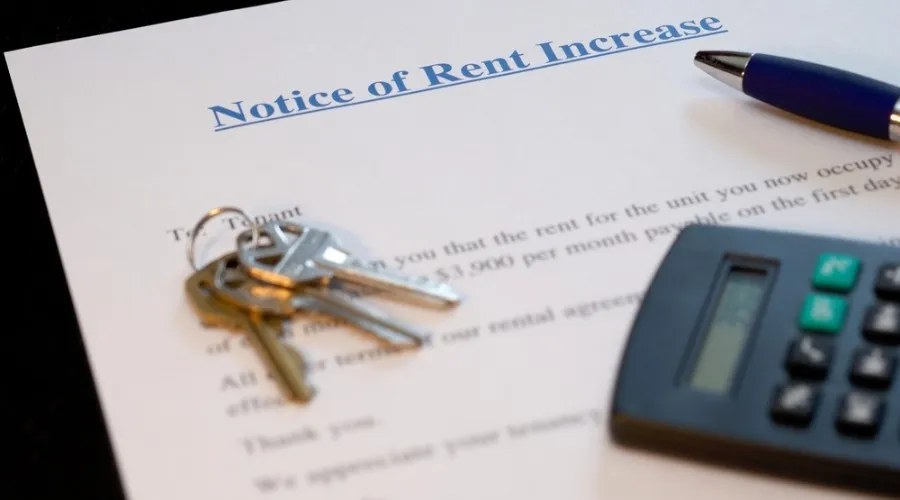New Jersey rent control laws are not state-wide laws but instead vary by municipality, with each local ordinance setting its own rules for rent increases and tenant protections. This localized system can create confusion for landlords, though it also gives flexibility to address unique housing market pressures. In this article, LeaseRunner helps you understand how these laws work across the state.
Introduction to New Jersey Rent Control Laws
Rent control in New Jersey is not decided at the state level, but rather by municipalities that set their own ordinances tailored to local housing market pressures. This localized system reflects how affordability issues differ between cities, especially in densely populated northern counties. For a full overview of state regulations, you can explore New Jersey rental laws.
Since the 1970s housing crisis, rent control programs have expanded, and by 2025, about 117 municipalities, covering nearly two-thirds of renter households, have adopted them. These ordinances generally apply to:
- Multi-family properties with three or more units (sometimes four, depending on the city)
- Exemptions for new construction (usually within the past 30 years), owner-occupied small properties, and subsidized housing
Impact on landlords
Landlords face both benefits and limitations under New Jersey rent control laws. To avoid disputes, they should ensure their lease agreement templates are clear and updated.
- Predictability: Rent caps provide stability in cash flow and occupancy. Supplemental increases can be requested to cover improvements or tax burdens.
- Flexibility through exemptions: New builds and smaller properties are often exempt, allowing market-rate rents. Vacancy decontrol in many cities lets landlords reset rent to market rates once a tenant moves out.
- Revenue challenges: Strict limits-such as 3.55% in Highland Park or 4% in Jersey City-restrict income growth amid rising costs for maintenance, insurance, and operations.
- Compliance pressure: Local boards enforce rules, requiring careful adherence to notice and documentation. Guidance is available on the required New Jersey landlord notices.
Impact on tenants
For renters, New Jersey rent control ordinances provide meaningful safeguards against displacement. Families also benefit from protections outlined in the New Jersey security deposit law.
- Affordability protection: Caps on increases, whether tied to CPI or fixed rates, support families. This is especially true for low- to moderate-income households that need stable housing budgets.
- Legal recourse: Tenants can challenge “unconscionable” rent hikes. They can also ask for rent cuts if conditions are poor. This is often supported by anti-retaliation rules.
- Broader support: Cities like Newark and Paterson offer tenant legal aid to reinforce housing rights.
Still, rent control coverage is uneven. Tenants in exempt units-such as newer apartments-face full market rates, which have climbed since the pandemic. Long-term renters may remain in place at low rates, reducing mobility and tightening supply for new arrivals. In some cases, landlords cut back on maintenance, creating quality-of-life concerns.
New Jersey rent control laws balance tenant protection and market tensions. They keep rent increases in check, but they can also impact landlords, investors, and housing availability.

Local Rent Control Ordinances in New Jersey
Instead of one statewide rule, New Jersey rent control laws are handled locally. Rent control in New Jersey began in the 1970s, when rising rents and housing shortages pushed local governments to act.
Under the Municipalities Act, cities and towns gained the authority to create their own rent control ordinances. This flexibility allows each municipality to tailor regulations to its unique housing needs. For city-specific details, see New Jersey state rental information.
Tenant groups, labor unions, and city leaders in Newark and Paterson pushed for reforms early on. By the 1980s, more than 100 municipalities had enacted ordinances. Today, about 117 cities and towns have active controls. They cover nearly two-thirds of the state's rental housing. Local laws keep changing due to inflation, tenant displacement, and affordability issues.
How municipalities govern local rent control laws
Each municipality enforces rent control through its own ordinance. These local rules usually:
- Form rent leveling boards or commissions. They will manage disputes, approve increases, and ensure compliance.
- Require landlords to register properties annually and keep units habitable.
- Mandate advance notice (often 60 days) for rent increases.
- Allow tenants to challenge excessive or retaliatory hikes, with free legal aid in larger cities.
Most ordinances apply to multi-unit properties, usually three or more apartments. However, they often exempt:
- Newer buildings (built within the last 20–30 years)
- Small owner-occupied homes (with fewer than five units)
- Hotels, subsidized housing, and short-term rentals
Vacancy decontrol is common. It lets landlords set rents to market rates when a tenant leaves. Noncompliance can result in fines, which can reach $500 in some places. Also, landlords might charge extra for tax hikes or approved capital improvements.
Annual rent increase limits
Rent increase caps under New Jersey rent control laws vary by municipality but generally range from 2% to 6% per year. Many are tied to the Consumer Price Index (CPI) to reflect inflation. Examples for 2025 include:
- Highland Park – 3.55% limit
- New Brunswick – 3.4% limit
- Pleasantville – 3.4% limit
- Morristown – flat 5% cap
Increases can only happen once every 12 months and may be frozen if landlords fail to maintain safe living conditions. Landlords can request hardship adjustments. However, they need to provide documents to justify any surcharges, like property tax hikes or renovations.
Examples of local laws in major cities
To see how these ordinances play out, here are highlights from key cities:
- Newark: Rent hikes capped at 4% or CPI, whichever is lower. Vacancy decontrol applies, and landlords may add surcharges for taxes (up to 22%). 2025 updates expanded anti-harassment protections.
- Jersey City: Caps at 4% or CPI for older multi-family units. A nine-member board oversees complaints, and fines can reach $2,000 for violations.
- Paterson: Rent increases capped at 4% or CPI. Owner-occupied triplexes are exempt. Recent reforms target “unconscionable” increases over 5%.
- Elizabeth: Strict limits—3% of base rent or $20 annually, whichever is higher. No vacancy decontrol, ensuring stable rent even after tenant turnover.
Exemptions from the New Jersey Rent Control Laws
Not every property in New Jersey falls under rent control. Below are the most common exemptions that landlords and tenants should understand before entering a lease.
Which properties are exempt
Certain types of housing are not subject to local rent control rules. Here are the main categories of properties that typically qualify:
- Newly built rental housing: Properties that received a certificate of occupancy after a municipality enacted rent control are usually exempt for up to 30 years. This exemption encourages real estate development without rent caps.
- Small owner-occupied buildings: Homes with two to four units are often exempt if the landlord lives in one of the units as a primary residence. This allows small landlords flexibility in setting rental rates.
- Single-family homes and duplexes: Standalone homes, townhouses, and duplexes are usually not under rent control. This applies if the owner has no other rental properties in the same town. Rules may differ by local ordinance.
- Condos and co-ops: Owners of condominiums and cooperative units are usually exempt. This lets them rent or sell at market rates, free from rent control rules.
- Government-subsidized housing: Apartments backed by federal or state programs—such as HUD-insured units or developments financed by the New Jersey Housing and Mortgage Finance Agency (NJHMFA)—are not covered under local rent leveling laws.
- Transient housing: Hotels, motels, boarding houses, and dormitories are exempt. They aren't seen as standard long-term rentals.
- Tax-abated or special-financed properties: These projects get tax incentives or federal housing support. They may qualify for exemptions based on how long the financing lasts.

Considerations of special cases
In addition to general exemptions, New Jersey law recognizes “special cases” for seniors and tenants with permanent disabilities. These groups are considered more vulnerable to displacement, so they are granted extra protections under rent control and eviction laws.
- Long-Term Eviction Protection: Seniors (age 62+) and permanently disabled tenants may qualify for up to 40 years of protection from eviction during condominium or co-op conversions. Eligibility is based on age, income limits (usually $50,000 or three times the county’s per capita income), and length of residency.
- Stronger Tenant Rights: Qualified tenants cannot be removed through unfair lease changes. Landlords can only proceed with eviction if they obtain approval from the administering agency.
- Local Oversight: Rent leveling boards or municipal agencies review applications, which typically must be filed within 60 days of notice. This ensures compliance throughout the conversion process.
- Additional Tenant Benefits: Seniors and disabled tenants may also receive:
- A five-day grace period for rent payments.
- The right to end leases early when moving to assisted living.
- Permission to keep service animals or make reasonable modifications to their units at their own expense.
- Eviction Protections under the Anti-Eviction Act: If no comparable housing is available, eligible tenants may be granted one-year stays, renewable for up to five years. They can also receive relocation assistance, such as several months of free rent.
Rent Increase Requirements for New Jersey Landlords
Understanding how rent increases work is essential for both landlords and tenants. Under New Jersey rent control laws, each step must follow clear rules to ensure fairness and compliance.
Landlords’ pathways to rent adjustment approval
Before landlords can raise rents beyond standard limits, they must follow regulated approval processes designed to balance owner needs and tenant protections.
- Approval requirement: Landlords who need to raise rents beyond standard caps must seek approval from local rent leveling boards or commissions.
- Purpose of approval: These pathways prevent arbitrary rent hikes while allowing landlords to recover rising costs.
Common pathways for rent adjustment approval include:
- Hardship relief: Demonstrating major financial strain (e.g., higher utilities or costly repairs).
- Fair rate of return: Ensuring a reasonable profit margin.
- Major capital improvements (MCI): Spreading costs of upgrades like new roofing or heating systems over time.
- Tax or municipal surcharges: Accounting for local government-related expenses.
Application process for the request:
- Typically requires financial records, receipts, or invoices.
- Tenants are notified and given the right to appeal.
In some cities, vacancy decontrol may occur. Rents may reset to market rates when a tenant moves out, but only under strict conditions, such as:
- Limits on how often it can occur.
- Proof that the tenant was not harassed.
Notice requirements for rent increases
Landlords are required to send a written notice, using rent increase templates, to inform tenants. The notice must include important details about the rent increase amount and the effective date.
The rent increase notification process can vary, depending on lease types and areas:
- Month-to-month leases: At least 30 days’ written notice is required, delivered in person or by certified mail. Rent increases are usually limited to once every 12 months unless local laws allow otherwise.
- Fixed-term leases: Rent cannot be changed mid-term. Any increase only takes effect upon renewal.
- Rent-controlled areas: Stricter rules often apply, such as 60–90 days’ notice, annual increase caps, registration with the rent board, and sometimes tenant acknowledgment forms.
- Non-compliance: If landlords fail to follow notice and frequency rules, the increase may be invalid, leading to disputes or delays in eviction.

How municipalities calculate rent increases
Each city follows its own rules when adjusting rent for controlled units. The approaches may differ, but they generally fall into a few key categories:
- Fixed percentage increases – Some municipalities set a standard rate, typically between 4 and 6%.
- CPI-based adjustments – Others tie rent hikes directly to the Consumer Price Index (CPI) to match inflation.
- Hybrid approach – For example, Newark caps increase at either 4% or the CPI, whichever is lower.
- Strict CPI adherence – Fort Lee bases its rent adjustments solely on the most recent CPI changes.
Rent boards set annual caps, typically between 3% and 5%, based on inflation. Exemptions might apply to new buildings or renovated units. Landlords facing high cost increases can also file hardship appeals. These formulas prevent sudden rent spikes while still accounting for local economic realities.
Penalties for illegal rent increases
Violating New Jersey rent control laws can lead to significant penalties. Municipalities often fine $1,000 or more for each violation. If the violations keep happening, they may add daily penalties. Tenants can challenge big rent hikes in court. They can hold back the disputed amount while the case is ongoing.
If a rent increase is deemed “unconscionable,” courts may order a rollback, dismiss eviction actions, or require landlords to cover tenant legal fees. In cities like Newark, non-controlled units can face penalties for unreasonable increases. This highlights the need for compliance.
How landlords can avoid legal problems
Landlords should check if their property is subject to local rent control laws. If it is, they need to register with the municipality. Written notice must be provided on time, 30 days for month-to-month tenants, or 60–90 days in controlled areas.
Best practices include documenting all expenses for hardship applications, keeping communication records with tenants, and seeking approval from rent boards when needed. Avoiding mid-lease increases, discriminatory practices, or retaliation claims is also key. In tough cases, landlords can consult a housing attorney or rent board. This helps them avoid expensive disputes and follow state and local laws.
Eviction Protections for New Jersey Tenants
Living in a rent-controlled unit doesn’t mean you’re unprotected. New Jersey has one of the strongest tenant protection frameworks in the country. Under the eviction process in New Jersey, landlords must follow proper legal steps, and tenants are safeguarded against unfair removals.
Anti-Eviction Act in New Jersey
New Jersey’s Anti-Eviction Act (N.J.S.A. 2A:18-61.1) sets the rules for when a landlord can legally remove a tenant. Since 1974, it has required landlords to show “good cause” before eviction.
- Valid reasons include non-payment of rent, disruptive behavior, or serious property damage.
- It applies statewide, even to rent-controlled buildings. It doesn’t include small owner-occupied properties (two units or less), short-term rentals under 125 days, or some motels and hotels.
- Self-help evictions like lockouts or cutting utilities are strictly banned.
How tenants are protected under this Act
Tenants benefit from strong legal shields that keep eviction fair and limited to lawful grounds.
- Landlords must prove good cause in court before an eviction can proceed.
- Tenants may withhold rent for habitability issues (like no heat or major repairs) if they follow proper notice rules.
- Notice periods vary: 3 days for non-payment, up to 30–60 days for other issues.
- Anti-retaliation protections prevent eviction for reporting code violations or filing complaints.
- In cases of demolition or condo conversion, tenants may be entitled to relocation aid or comparable housing.
Since 2025, renters can use the state’s Eviction Defense Tool. This tool connects them to legal aid resources. Also, no eviction can happen without a court-issued warrant of removal.
What must landlords do under this Act?
Compliance with New Jersey rent control laws requires landlords to follow every legal step.
- Serve the correct notices (Notice to Cease → Notice to Quit) using certified mail or personal delivery.
- File a verified complaint in Superior Court and pay filing fees (around $175 in 2025).
- Present evidence at hearings, such as leases or witness testimony, to prove good cause.
- Maintain habitable housing conditions or risk rent abatements and eviction defenses.
- In some cases, like permanent unit retirement, it offers compensation or alternate housing. This requires municipal approval.

Senior citizens & disabled protected tenancy
The Senior Citizens and Disabled Protected Tenancy Act (N.J.S.A. 2A:18-61.22) grants qualifying seniors (62+) and disabled tenants up to 40 years of protected tenancy if their building converts to condos or co-ops.
- To be eligible, you need one year of residency before conversion. Also, your household income must be within limits. It should be three times the county's per capita income or at least $50,000, whichever is higher.
- Applications must be filed within 60 days, reviewed by municipal agencies or the DCA.
- Tenants can only be evicted for good cause during protection. If no suitable housing is available, they may get hardship extensions.
As of late 2025, a pending bill (S290) would extend these rights further, though the 40-year cap remains in place until enacted.
Practical Tips for Landlords to Resolve Disputes with Tenants
Handling tenant conflicts under New Jersey rent control laws can be tough. From mediation centers to lawyers, these resources can help landlords resolve disputes successfully.
1. Use legal mediation services
Mediation is your first step to resolving disputes with tenants. It’s the most cost-effective and non-confrontational method. You can use paid mediation services or community mediation programs, many of which are supported by cities like Newark and Jersey City through rent leveling boards.
Sessions are typically confidential and designed to help address issues such as rent disputes or repair complaints. Always document any agreement in writing, and check whether your city requires mediation before moving forward with a formal complaint.
2. File a complaint with local rent control boards
In rent-controlled areas, landlords can bring cases to local rent leveling boards. These boards review disputes over unpaid rent, lease violations, or requests for rent increases above the cap. Filing usually costs around $50–$100, and decisions are binding unless appealed.
3. Seek legal counsel
When disputes become complicated or you cannot resolve issues directly with the tenant, it’s best to consult a landlord-tenant attorney or other qualified professionals. Legal experts ensure that notices comply with the law, prepare strong evidence for court, and guide you through proper procedures. This reduces the risk of case dismissal, costly fines, or prolonged delays, giving you greater protection and peace of mind.

4. Negotiate a payment plan
If tenants fall behind on rent, a repayment plan may work better than eviction. Example: spreading $1,000 over six months while requiring the current rent to be paid on time. Some boards even oversee these plans to ensure fairness.
5. Initiate court proceedings
If all else fails, landlords can file an eviction case in the Superior Court, Special Civil Part, but only for “good cause.” Filing costs about $175, and self-help evictions (like lockouts) are illegal. Since tenants now have more legal aid options, landlords must strictly follow the procedure.
Legislative Proposals in New Jersey Rent Control Laws
Understanding new proposals is essential for landlords, tenants, and policymakers navigating New Jersey rent control laws. Below are two key updates shaping the state’s housing landscape.
Proposed Statewide Rent Cap – Senate Bill 2953
Senate Bill 2953 was introduced to establish rent control for manufactured home park sites, not to impose a blanket statewide rent cap. Together with Assembly Bill A3361, it cleared both houses of the New Jersey Legislature in 2025, signaling a targeted approach to address affordability in this housing sector.
The bill was aimed at protecting vulnerable residents facing steep increases. The proposed annual rent increase limit is capped at 3% or the Consumer Price Index (CPI), whichever is lower—much lower than in other areas. Additionally, under this proposal, landlords must provide written notice of rent hikes, disclose their contact details, and clearly explain terms for month-to-month renewals.
If tenants believe a rent hike is excessive, they may petition the Department of Community Affairs (DCA) for review. While the proposal does not extend to all rentals, it sets an important precedent for rent stabilization efforts in New Jersey. As of September 2025, the bill awaits the governor’s approval.
Ban on AI rent-setting tools in Jersey City
In May 2025, Jersey City became the first in New Jersey to propose banning AI rent-setting tools. Officials warned these systems could inflate rents and harm tenants, with fines of $2,000 per day for each violation imposed on landlords who break the ban. The ordinance, led by Councilmember James Solomon, arose from worries about tools like RealPage. These tools reportedly caused coordinated rent hikes.
Simply put, the law bans the use of software that relies on competitor data to set rents or occupancy rates. Each violation—calculated per unit, per month—may result in fines of up to $1,000 under New Jersey law.
Conclusion
New Jersey rent control laws are complex, with over 100 municipalities enforcing their own rent stabilization rules. Local ordinances dictate rent increase limits, exemptions, and the required notices landlords must provide. These regulations are designed to protect tenants from unfair rent hikes and unjust evictions.
For landlords, staying informed and compliant isn’t optional—it’s the key to avoiding costly legal issues and maintaining good tenant relationships. That’s why having a clear, up-to-date lease agreement is so important. At LeaseRunner, we make this easier by providing customizable lease templates and reliable tenant screening tools, such as eviction checks and credit checks. With our resources, landlords can focus on managing properties legally, efficiently, and with confidence.
FAQs
Q1. Does New Jersey have a statewide rent cap?
No. Rent control is managed by local laws in around 117 cities. Caps usually range from 2% to 6% or are linked to the CPI.
Q2. Can tenants fight excessive rent increases?
Yes. Tenants can challenge rent hikes as “unconscionable.” They can go to local rent boards or courts. This is especially true if the increases go beyond usual landlord costs or market trends.
Q3. How do local rent control laws affect landlords?
Municipal rules usually limit increases. They need advance notice and might require board approval for surcharges. Exemptions often apply to new construction or vacancy decontrol.



